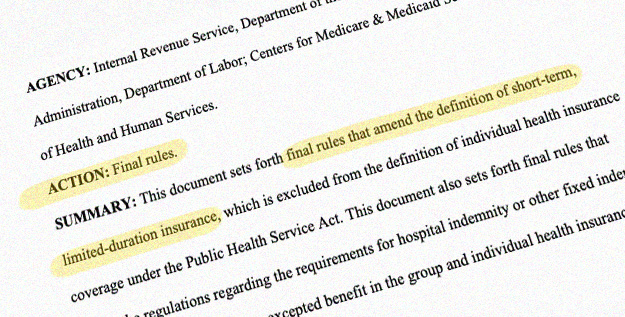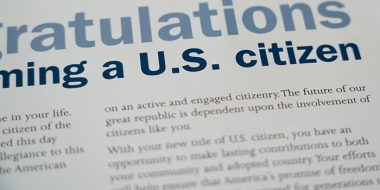Q. My parents moved to the United States last year. They have been using a travel health insurance policy, but it will expire soon. They are both 68 years old, but do not qualify for Medicare because they have not lived in the U.S. long enough. Can they get individual health insurance in the exchange?
A: Yes. Since your parents are not enrolled in Medicare, they can purchase a private plan in the exchange (Marketplace). And since they’re not eligible for premium-free Medicare Part A (because they don’t have a work history in the U.S.), they can receive cost-sharing reductions and premium subsidies if they are eligible based on income.
For additional information, this FAQ sheet from CMS is helpful in understanding the rules regarding individual market coverage and Medicare.
Be aware that most travel insurance policies do not qualify as minimum essential coverage under the ACA. As such, their expiration is not considered a qualifying event that triggers a special open enrollment. So your parents will need to make sure that they enroll in a permanent plan during the annual open enrollment period.
How does Marketplace eligibility and subsidy eligibility work for a person who is 65 or older?
Section 1882 (d)(3) of the Social Security Act states that it is unlawful to sell private health insurance to a person who is entitled to Medicare. But it’s important to point out that “entitled” means actually enrolled in Medicare, not just eligible for it (see the “b” portion of the answer to question 3 here).
Although most people in the U.S. do become eligible for Medicare when they turn 65, not everyone who is 65 or older has the option to enroll in Medicare.
Immigrants will generally become eligible to enroll in Medicare after they’ve been in the U.S. for five years. But as long as they’re not eligible for premium-free Medicare Part A, they will continue to be eligible for income-based subsidies in the Marketplace if they choose not to enroll in Medicare.
So to clarify: An immigrant who has been in the U.S. for less than five years will not be able to enroll in Medicare, and will be able to enroll in a Marketplace plan. Once they’ve been in the U.S. for five years, they’ll have the option to enroll in Medicare, but will have to pay a premium for Medicare Part A if they don’t have at least 10 years of work history in the U.S. If they aren’t eligible for premium-free Medicare Part A, they can choose to keep their Marketplace plan (and subsidy) instead of enrolling in Medicare.
This is not an option for people who are eligible for premium-free Medicare Part A. If that’s an option, your Marketplace subsidy will end once you become eligible for premium-free Medicare Part A, even if you don’t enroll in it. Here’s more about understanding the transition from Marketplace coverage to Medicare.
How did the ACA change health coverage availability for people age 65 or older who aren't eligible for Medicare?
Before the Affordable Care Act (Obamacare), age was a limiting factor for eligibility in the individual market, just like pre-existing conditions. Insurers typically only allowed people up to about 64.5 years old to enroll in coverage, and coverage was terminated for members who turned 65.
But that is no longer the case. Assuming an applicant who is 65 or older is not entitled to Medicare (meaning not already enrolled in either Medicare Part A or Part B), the application will be processed just as it would for a person under age 65.
The ACA limits premiums for older applicants to three times as much as premiums for younger applicants. So eligible enrollees age 65 and older are charged no more than three times as much as applicants who is 21. And premium subsidies are available, depending on income, for people of any age as long as they aren’t eligible for an adequate, affordable employer-sponsored plan, Medicaid, or premium-free Medicare. These subsidies are larger and more widely available than they used to be, thanks to the American Rescue Plan and Inflation Reduction Act.
Louise Norris is an individual health insurance broker who has been writing about health insurance and health reform since 2006. She has written dozens of opinions and educational pieces about the Affordable Care Act for healthinsurance.org. Her state health exchange updates are regularly cited by media who cover health reform and by other health insurance experts.














